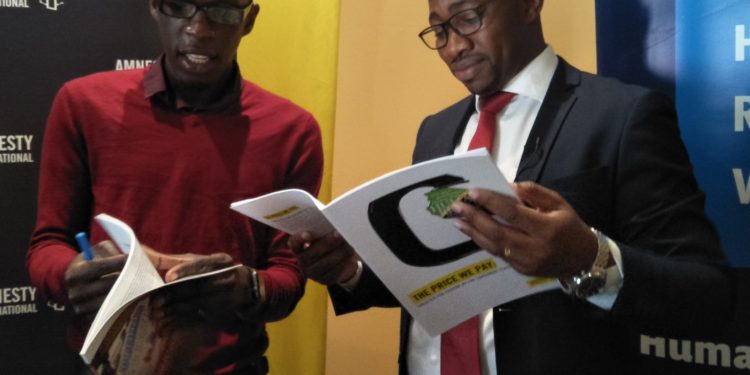Tanzania has launched a campaign of repression targeting journalists and human rights organisations ahead of next years election two reports have claimed.
In separate reports with similar findings, Human Rights Watch and Amnesty International have found that the government has been using old laws and enforced new policies to target dissent and silence its critics.
Since President John Magufuli’s election in 2015 the government has deregistered non-governmental organisations (NGOs), suspended media organisations and harassed journalists, politicians and activists that have championed for human rights, reporting abuses, or raised eyebrows on government activities and political opposition.
“As President Magufuli marks four years in office next month, he must carefully reflect on his government’s record of ruthlessly disemboweling the country’s human rights framework. His government must repeal all oppressive laws being used to clamp down on dissent, and urgently end human rights violations and abuses,” said Roland Ebole, Amnesty International’s Tanzania researcher.
Earlier in the year police arrested investigative reporter Erick Kabendera for alleged sedition and publication of false information in an article he wrote.
The two human rights organisations interviewed a total of 148 people including journalists, bloggers, non-governmental representatives, lawyers, political parties, academics, religious leaders and diplomats.
They also reviewed charge sheets, court decisions, photographic and video evidence, government notices and orders that portray any form of threats or intimidation.
At least five laws have been passed targeting journalists, bloggers, civil societies and the opposition.
The Media Services Act 2016 provides power to the Ministry of Information, Culture, Arts and Sports to censor the media and constrain independent journalism through accreditation by the government and the creation of overly broad criminal offences that can be easily abused by the government.
This law has paved way for the suspension of at least five newspapers, the closure of Swahiba FM radio station for reporting the annulment and rerun of the 2015 elections and the six months suspension of an online television station, Kwanza television, for allegedly publishing “false and misleading information.”
The Cybercrimes Act 2015 restricts free expression online and it has been used to prosecute individuals for the posts they make online.
The 2015 statistics act which until its amendment 2019 restricts the publishing and dissemination of independent research that “invalidate, distort or discredit” the National Bureau of Statistics (NBS) statistics. This act made it a crime for the media to publish statistics not approved by the governmental body. The government has the power to determine what statistical information is factual or false.
“We see a dangerous repressive trend escalating in Tanzania. The authorities are denying citizens their right to information by administering only those “truths” sanctioned by the state,” said Ronald Ebole.
Adopted in 2018, the Electronic and Postal Communication Act gives powers to the Tanzania Communications Regulatory Authority (TCRA) to license online content such as blogs and websites. It requires anyone owing a blog or website to pay up to more than USD 900 which translates to 2.1 million Tanzania shillings. Many bloggers cannot afford the fee and have stopped blogging.
According to the report by the Human Rights Watch, this law broadly “restricts online content and permits surveillance of cybercafés without judicial oversight.” The owners of cybercafés are also required to have closed-circuit television (CCTV) cameras and provide identification of users.
New regulations were enforced asking NGOs to openly state the sources of their funds, spending rate and planned activities or risk deregistration.
The Political Parties Act 2002 amended in 2019 has granted powers to the registrar of political parties to deregister political parties, suspend party members and ask information from political groups. It also hinders access to information by requiring individuals and organisations to seek approval before conducting civic education.
“The regressive policies and actions have stifled the media, sown fear among civil society, and restricted the playing field for political parties in the lead-up to elections,” said Oryem Nyeko, Human Rights Watch.
He added that the Tanzanian government needs to show commitment to protecting freedom of expression, association and assembly as enshrined in the constitution.







